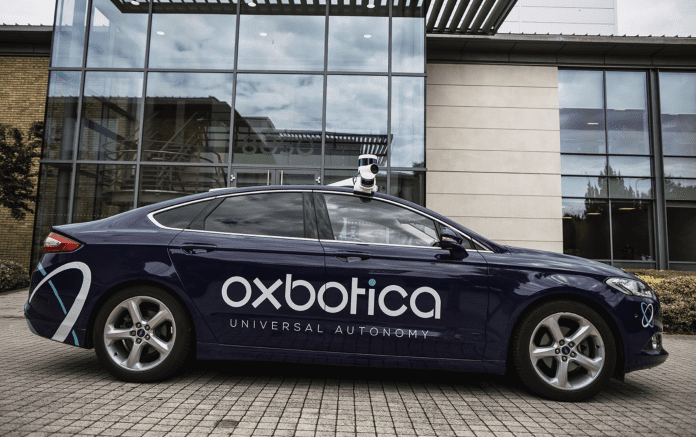Cisco is working with Oxford University spin-out company Oxbotica on a UK trial to explore how autonomous vehicles can securely and automatically share data via public Wi-Fi hotspots.
The idea is to utilize public Wi-Fi infrastructure to support their access to data, as autonomous vehicles come into range, around service stations and urban areas, and to relieve the burden on live transmissions over wireless networks.
The trial of so-called OpenRoaming technologies for large-scale data sharing among fleets of autonomous vehicles has been taking place in Stratford, East London, since last September.
Oxbotica, which makes software for autonomous vehicles, has been leading the work. Cisco has recruited a federation of providers, besides, to help work out how to enable vehicles – along with smartphones and other devices – to automatically share data when in range of trusted “standards-based” networks.
The plan is autonomous vehicles will offload and access data using embedded identity credentials, doing away with the need for manual entry of usernames and passwords.
Cisco reckons 70 million connected vehicles will be entering the market each year by 2024. Each will be required to upload and download 8.3GB of data per day, including streamed infotainment, HD navigation, vehicle telemetry and advanced driver assistance systems (ADAS) settings.
It said autonomous vehicles will make around 150 independent detections every second and generate up to 80GB of data for every hour on the road (1.2TB in a 16 hour day), garnered from on-board cameras, LiDAR and radar sensors, and ADAS logs.
Much of the vehicle data must go to the cloud. Some will be processed in the vehicle, using hefty edge compute power, some will be exchanged on low-latency LTE and 5G based vehicle-to-everything (V2X) networks, and some will be uploaded when vehicles park. The OpenRoaming project is looking at ways to solve the last scenario.
Cisco said there are opportunities for Wi-Fi hotspots to be deployed in locations such as gas stations, EV charging locations, parking structures, and vehicle service centres.
It said: “Stretched across an autonomous fleet, which could include hundreds or even thousands of vehicles in a city or region, this would produce an abundance of data beyond that which could be shared efficiently and cost-effectively using existing 4G, or emerging 5G, networks.”
The Oxbotica-Cisco trial will see Oxbotica customers “access, customise and integrate the world’s leading mobile autonomy IP into their own products”, the pair said. “The platform to be tested is designed to be fully-scalable, capable of being deployed across various fleet networks no matter the size or location, while delivering cost-effective and secure data offload,” they said in a statement.
Ozgur Tohumcu, chief executive at Oxbotica, said: “Our pioneering software already reduces the amount of data sharing that is required, allowing vehicles to operate wherever they are, with or without network connection. Our software has been designed to operate not dependent on any infrastructure, so it can understand the vehicle’s environment in infinite detail.
“However, we recognise that in an autonomous world, fleets will need to upload and download vast amounts of data and the partnership with Cisco offers us the chance to solve one of the greatest data challenges of the future, already today.”
Matt MacPherson, chief technology officer for wireless at Cisco, said: “For industrial applications where devices, such as autonomous vehicles rather than people, are moving through areas that are covered by Wi-Fi, this technology is designed to enable that simple, automatic connection that users experience when using mobile networks.
“OpenRoaming opens up the possibility of a cost-effective alternative for transporting high-volume data to and from the vehicle, autonomously.”

